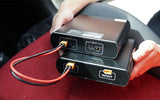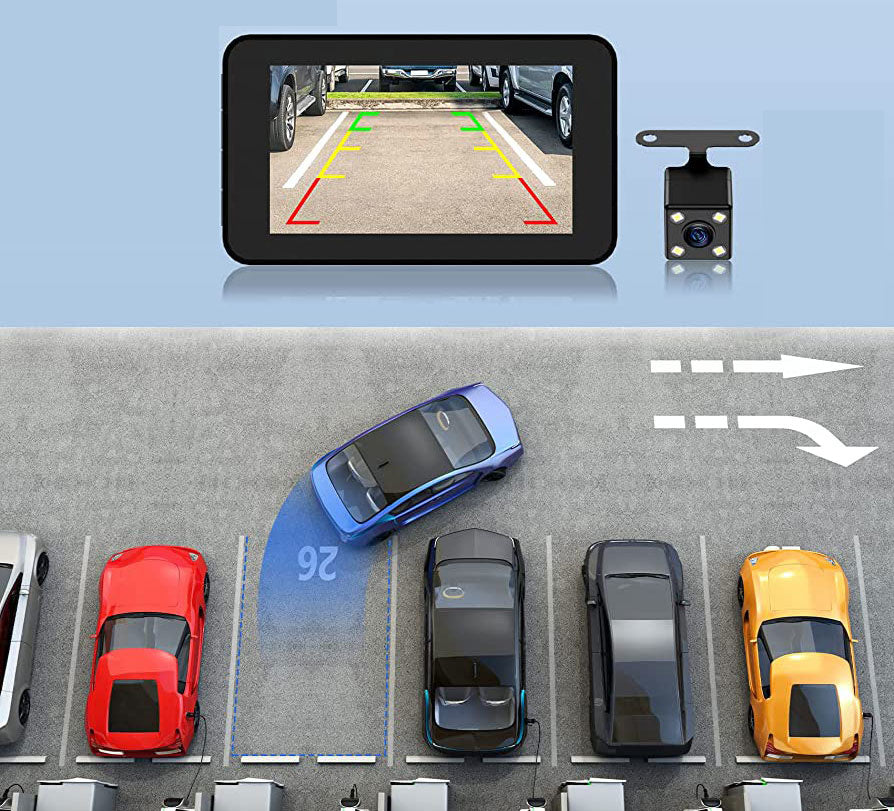
Battery or super capacitor in a dashcam explained
, by Allcam dashcams, 2 min reading time

, by Allcam dashcams, 2 min reading time
A dashcam can be equipped with a Li-ion battery or super capacitor (capacitor). Both have their own advantages and disadvantages. You can find more information about connecting a dashcam to an external battery pack or powerbank in this article.
 The most commonly used battery in electronics is the Li-ion battery. You will find this type of battery in almost every device that you use wirelessly without power, such as your mobile phone. The advantage of a Li-ion battery is that it can store a relatively large amount of power and is still compact.
The most commonly used battery in electronics is the Li-ion battery. You will find this type of battery in almost every device that you use wirelessly without power, such as your mobile phone. The advantage of a Li-ion battery is that it can store a relatively large amount of power and is still compact.
A disadvantage is that it does not cope well with changes in temperature and is also not well suited to constant charging like you do in your car. They quickly lose capacity then. Higher capacity Li-ion batteries are again a lot more expensive, which is why low capacity batteries are usually used in dashcams, usually up to around 400mAh. In practice, such a battery is only just able to switch off the dashcam when you turn off the ignition and perhaps film for a few minutes at most.
 Many dashcams these days no longer have a built-in Li-ion battery but a super capacitor. Super capacitors are somewhat more durable than Li-ion batteries and can also withstand more extreme temperatures. Super capacitors are generally more expensive than Li-ion batteries, which is why you mainly see them on dashcams in a higher price category. However, the lifespan of dashcams with a super capacitor is a lot longer than dashcams with a Li-ion battery.
Many dashcams these days no longer have a built-in Li-ion battery but a super capacitor. Super capacitors are somewhat more durable than Li-ion batteries and can also withstand more extreme temperatures. Super capacitors are generally more expensive than Li-ion batteries, which is why you mainly see them on dashcams in a higher price category. However, the lifespan of dashcams with a super capacitor is a lot longer than dashcams with a Li-ion battery.
One disadvantage is that a super capacitor can only store a very small amount of power. As a result, a dashcam with a super capacitor cuts out almost immediately after you turn off the car. Dashcams with a super capacitor can therefore not be used at all without being connected to the power supply.
Since the capacity of Li-ion batteries in dashcams is therefore usually very low, in practice you should always have the dashcam connected to the power supply. Therefore, the advantages of a Li-ion battery usually do not outweigh the advantages of a super capacitor, these are simply slightly more durable.
Nevertheless, a Li-ion battery - if working and charged - can still allow you to record for some time after the power has gone out. The latter can of course be the case in a collision; in the case of a dashcam with super capacitor, you would miss these moments. That said, most manufacturers these days opt for a super capacitor.


